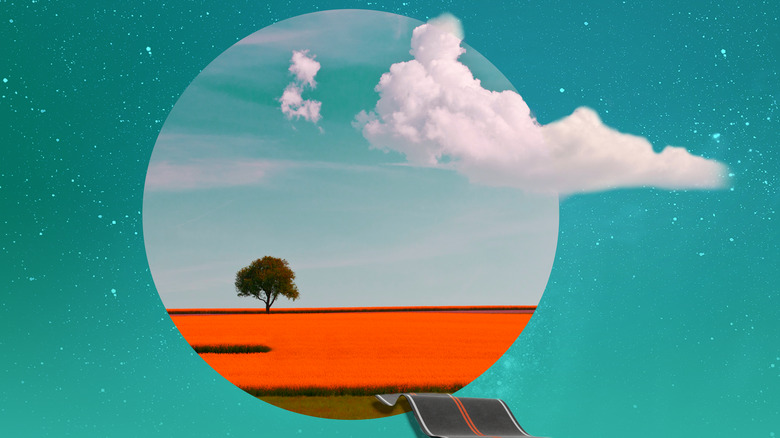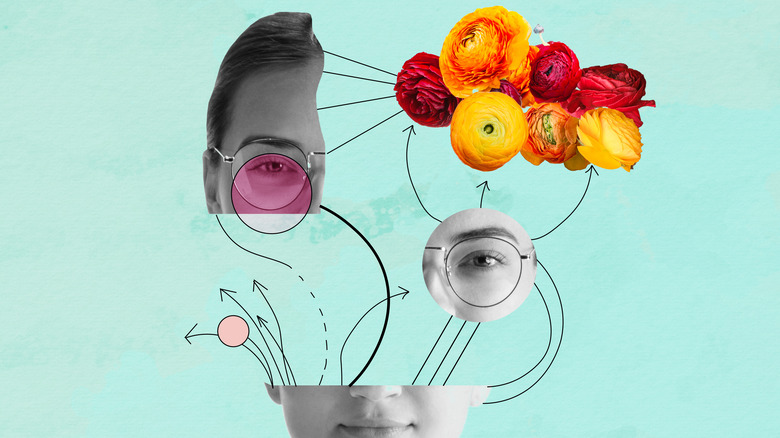Why Do People Dream?
Sometimes we fly, sometimes we're naked. Sometimes we club zombies with truncheons in crypts, sometimes we hack robots with swords made from black holes. Sometimes we're doing droll daily tasks like pushing a baby carriage down a hill, and oh, no! We lose control, but the carriage was thankfully empty. So the future is getting out of hand, but nothing is really at risk. See? Interpreting dreams is easy.
People have long ascribed special meanings to dreams. In Ancient Egypt, dreams were messages from the gods and the land of the dead, used to make life decisions, per Analyse Dreams. The Old Testament mentions similar instances of prophetic dreaming, such as in Genesis 37: 1-36, when Joseph's brothers sold him into slavery because of a dream in which he was their ruler, readable on Bible Gateway. In Ancient Greece, per Theoi, dreams were caused by Hypnos, the god of sleep and son of Nyx, goddess of night, who caused people to fall asleep before dispatching other gods like Morpheus to deliver particular dreams.
Some folks today still see dreams in a mystical way. Dream journals are a common therapeutic and creative tool. At the very least, we've got psychoanalyst and chronic cigar smoker Sigmund Freud to thank for shifting the source of dreams from "gods" to the unconscious: all that stuff of thoughts, memories, drives, intentions, and instincts that propels our waking decisions. But dreams? Their source and purpose remain shrouded in mystery.
People dream during REM sleep
Before going further, we've got to look at sleep itself: its cycles, what happens physiologically when people dream, things like that. Reason being: All creatures sleep. And if you've ever seen a dog twitch while sleeping? She's dreaming, too. While we can't say for certain if every species dreams — reptiles? Insects? — we can at least assume dreaming has some meaningful, evolutionary function. Otherwise, it wouldn't happen. And that function must be connected to sleep, either as a cause, effect, or concurrent event.
Very Well Health has a good outline of the four stages of sleep. Three stages are "non-REM" (NREM), non-dreaming stages. The fourth stage is the "REM" (rapid-eye movement) stage, when people dream. Stage 1 is that vividly creative in-between phase when people transition to sleep, and breathing and heartbeat slow down — high-amplitude, low-frequency theta waves are common here. In Stage 2, which lasts about 20 minutes, heart rate and breathing become even, and the brain works in short bursts as it consolidates new data from the day. Stage 3, or "deep sleep," when delta waves reign, is a healing period of cellular and hormonal restoration where general knowledge and experiences are reviewed. After this, people go back to Stage 2, then Stage 4, known as "REM." This is when people dream and eyelids flutter. One whole sleep cycle lasts at least 90 minutes. In a single night, people go through several cycles.
Dreamtime is a time of physical healing
In many ways, sleeping seems disadvantageous: if animals are unconscious and dreaming, they can't hunt, hide, mate, and so on. And when we're dreaming, our bodies are effectively paralyzed. So what's the point?
We already mentioned some of the health benefits of deep sleep, which relate to completing multiple instances of the entire sleep cycle, Stages 1-4. As Very Well Health tells us, getting proper sleep results in bone and muscle growth, a strengthened immune system, better memory consolidation and recollection, reduced likelihood of erratic emotional responses, increased ability to focus and learn new information, better ability to think and work creatively — the list goes on and on.
In a recent 2021 study reported in Science Daily, the University of Tsukuba in Tokyo, Japan, discovered an additional link between REM and physical health. Researchers found a tremendous increase in the flow of red blood cells during REM sleep, and only REM sleep. The study, which examined sleeping mice, found increased activity in adenosine A2a receptors, which makes REM sleep akin to drinking coffee in terms of how it dilates blood vessels. In turn, this greatly enhances the brain's "waste removal" function and could lead to decreased risk of neurodegenerative disorders like Alzheimer's.
So, dreams happen while your brain is taking out the trash. And the trash looks like you flying over skyscrapers on your way to the dentist on Jupiter. Seeing as how garbled so-called "dream logic" can be, this makes sense.
The mind talking to the mind
So we know what physically happens when we sleep and dream. But the question remains: Why do we "see" actual images in our mind's eye? And why are they so often a jumbled collage of non-sequitur events? It's this last point that makes everything in a dream seem so symbolic and relevant: It can't be accidental, reasoning goes.
The Conversation has a good overview about the "why" behind dreams. We already talked about dreams as "taking out the cellular garbage," known as "memory consolidation theory." Related to this, and to the question of animals being vulnerable while sleeping, evolutionary theory suggests that dreams are a way of working through "challenging or threatening situations." In other words, they're actually a sleeping version of chewing on a problem in your waking mind. Plenty of other sources, such as The Atlantic, and individual creative people, attest to the "sleep it over and you'll feel fresh in the morning" strategy. This should sound like common folk wisdom, the kind of thing that your grandmother might have recommended.
By this reasoning, dreams really are your mind sending messages to itself. The ancients said that the "gods" were speaking to them. In modern terms, we call this deep reservoir of the self the "unconscious." As for why we have sensory experiences in our dreams? That's how we process our entire world: through the senses. Probably a good idea to get some decent sleep and hear what you've got to say.



